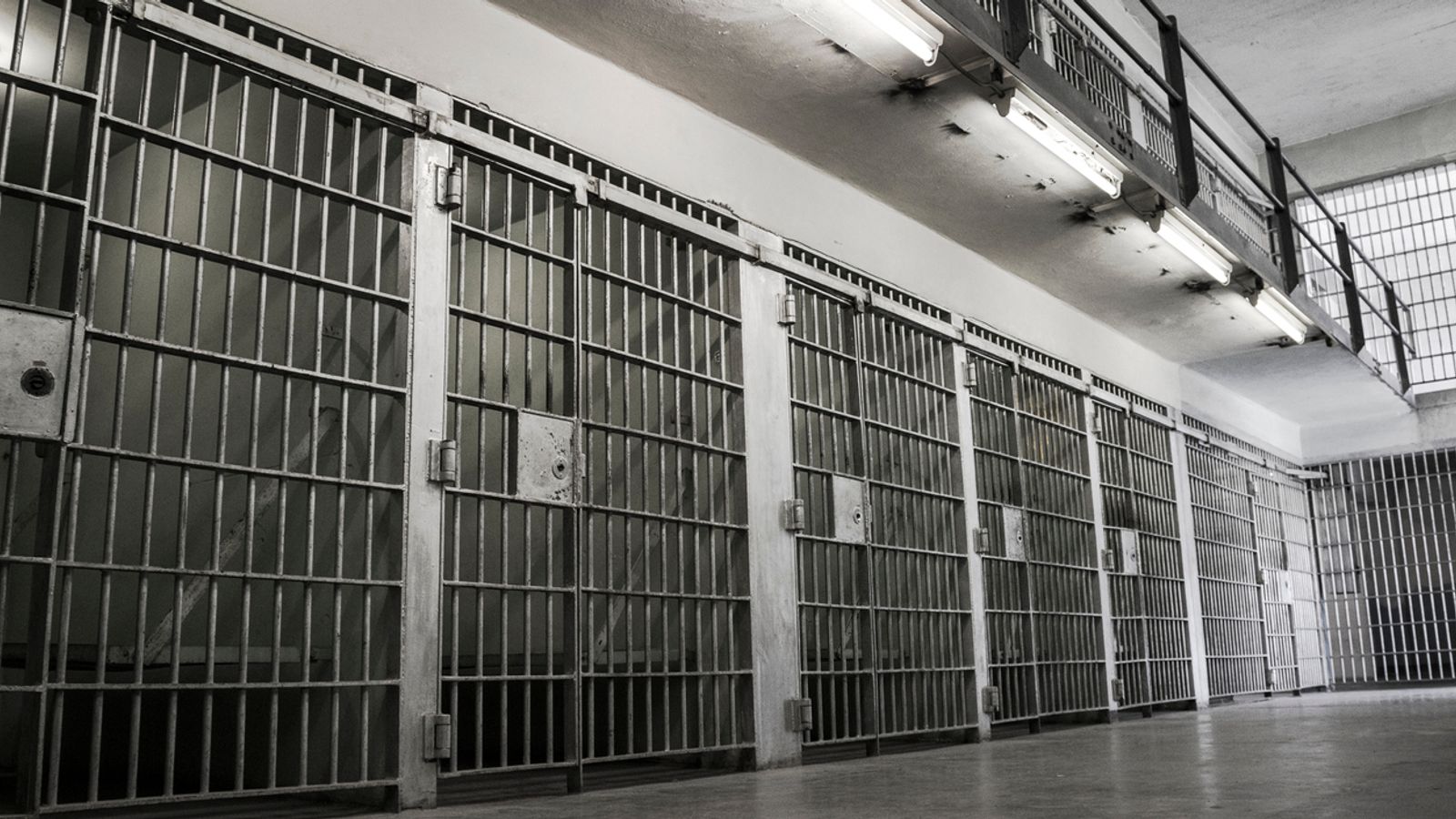More than 1,000 criminals could avoid prison this year due to a lack of places, the Labour Party has warned.
According to the government’s own projections, the prison population is set to grow to 89,100 by this November, but there are only 87,573 operational prison places left – creating a shortage of 1,527 places.
As it stands, there are only 971 prison spaces left in the system – prompting Labour to accuse the government of “dither and delay”.
By-election after Margaret Ferrier loses seat – politics latest
The party says that of the £4bn allocated to build new prison places, only £1.3bn had been spent so far.
It also pointed to new statistics which show there has been a 153% increase in assaults in prison staff since 2010, as well as 325% rise in the number of drugs found in prisons.
Steve Reed, Labour’s shadow justice secretary, said prisons were “turning criminals away because the Conservatives failed to build the cells they promised”.
“The situation has become so chaotic that the Conservative government has instructed judges not to lock up dangerous criminals, leaving them to roam the streets and seek out new victims,” he said.
“To make matters worse, criminals who do end up in jail have been allowed to run riot with violence and drug abuse spiralling out of control, driving up reoffending rates.
“Labour is the party of law and order. In government will get on and deliver the prison places we need to ensure that dangerous criminals are where they belong – behind bars.”
In June, the former justice secretary, Dominic Raab, caused controversy when he wrote to the Lord Chief Justice suggesting that judges should take prison overcrowding into account when passing sentence or deciding whether to remand people in custody.
Earlier this year, lorry driver Fabian Greco received a suspended sentence for punching and kicking a man in a road rage incident due to “pressure on the prison estate”, while Arie Ali, a people trafficker who threw a mug of boiling hot liquid at a prison officer, also avoided a jail sentence because of overcrowding concerns.
Last November, prisons minister Damian Hinds admitted the government was running out of prison places and had asked police for 400 cells to accommodate the prison population, in a move that is referred to as Operation Safeguard.
Months earlier, Mr Raab had also outlined plans to create 20,000 prison places by 2025.
In a recent appearance in front of MPs last month, the current justice secretary, Alex Chalk, admitted there was “intense pressure” on prison capacity – but insisted “there will always be enough prison places to keep the British people safe”.
Read more:
Thousands of criminals left prison ‘unlawfully’ over past decade
Rape conviction of man who spent 17 years in prison overturned
Mr Chalk blamed the current situation on the impact of the COVID pandemic and strikes by barristers, which had “ticked up the case load”.
Bob Neill, the chair of the Justice Select Committee, asked whether the commitment to build 20,000 new spaces could be met given that the government is “on track to do 8,200”.
Mr Chalk said new house blocks at existing prisons and rapid deployment cells were being accelerated.
On Labour’s latest intervention, Mr Hinds said the party’s record “proves they are soft on crime and soft on criminals”.
“Keir Starmer has consistently whipped his MPs to vote against stronger sentences for violent and sexual offenders,” he said.
“The last time Labour were in power, they released 80,000 prisoners early, including terrorists.
“We have cut the reoffending rate to lower than when Labour left office, increased the conviction rate by 15 per cent, introduced tougher sentences for the worst offenders, and are building more new prison places than under any Labour government.”






















